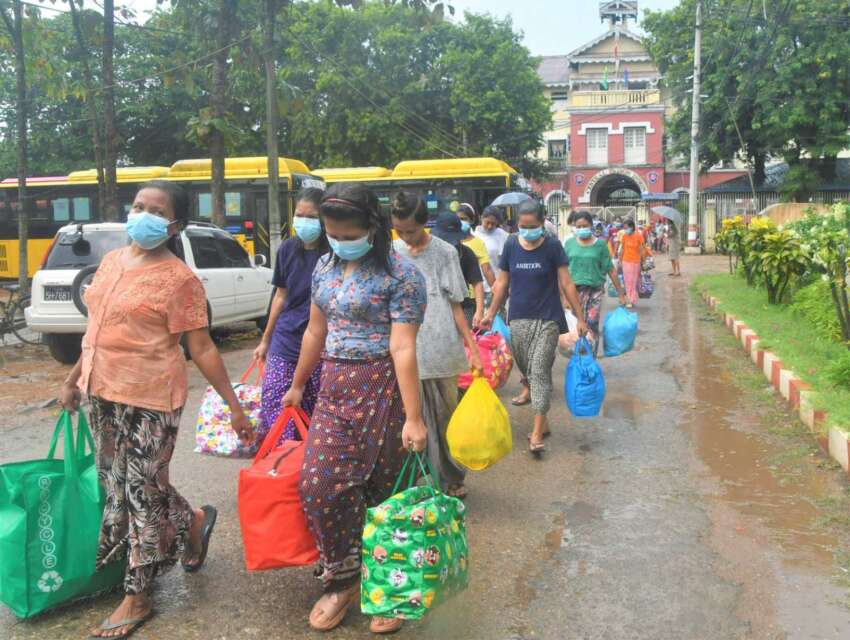
The military council has announced the release of 4,893 prisoners and 13 foreign inmates as part of an amnesty granted on Myanmar New Year’s Day. The amnesty comes with specific conditions, stating that if released prisoners commit another offense, they will have to serve both the pardoned sentence and any new penalties. Additionally, the council announced that other inmates would receive a reduction of one-sixth of their sentences. This mass release is being implemented across various prisons throughout the country, including the notorious Insein Prison.
Military council leader Min Aung Hlaing is scheduled to meet with ASEAN leaders, and according to military sources in Naypyidaw, some political prisoners may be included in this amnesty as part of efforts to gain international recognition and approval. However, activists and human rights observers note that this amnesty appears to be a political maneuver rather than a genuine step toward reform. The military council continues to hold thousands of political prisoners while using these periodic releases as diplomatic leverage in international relations.
While families have been reunited with those released from prisons across the country, including Insein Prison, thousands of political prisoners remain behind bars, with international communities continuing to call for their release. Human rights organizations have criticized this amnesty as a political tactic that falls far short of meaningful democratic reform. The conditions attached to the releases, including the threat of serving pardoned sentences if re-arrested, highlight the military council’s continued use of the justice system as a tool of control. This amnesty announcement comes at a time when the military council faces ongoing resistance from various parts of the country and increasing international pressure for democratic reforms and the release of all political prisoners.



